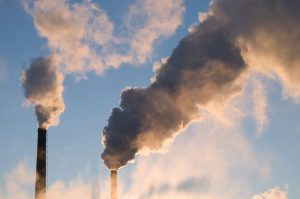The D.C. Circuit Court of Appeals in September ruled against the EPA in United States Sugar Corp. v. EPA, unanimously deciding that the EPA erred in retroactively classifying industrial boilers built before 2020 as new sources of emissions.
These boilers are used to create heat, electricity, and other forms of energy by burning materials like coal, paper, and agricultural waste.
Under the Clean Air Act (CAA), the EPA is directed to establish emissions standards for new and existing sources of hazardous air pollutants.
“The Act says a source is ‘new’ if it is built after EPA proposes an applicable emission standard for that source. A source is ‘existing’ if it is built before then. … This distinction matters because the required standards for new sources are generally stricter than the required standards for existing sources,” the ruling states. “In a 2022 rule, EPA classified some industrial boilers as ‘new’ sources of hazardous air pollutants even though they were built before the applicable emission standards were proposed in 2020. Because that classification conflicts with the [CAA’s] definitions of ‘new’ and ‘existing’ sources, we grant the petitions brought by the U.S. Sugar Corporation and trade groups representing other operators of industrial boilers.”
The ruling is noteworthy because it clarifies the statutory language. The court used “a rigorous post-Chevron approach to interpret the statute’s meaning based on its structure, context, and history,” law firm Mayer Brown LLP stated in a news release. “The court declined to defer to the EPA’s interpretation, marking a pivotal moment in administrative law and statutory interpretation.”
Led by partner Tim Bishop, Mayer Brown represented U.S. Sugar in the lawsuit.
“This ruling is a significant win for U.S. Sugar and sets an important precedent for how regulatory agencies’ rules should be applied,” Bishop said. “We are pleased with the court’s thorough analysis and its alignment with our client’s position.”
This case is the most recent in a long list of lawsuits against the EPA’s attempts to regulate emissions from industrial boilers, Reuters reports.
“The D.C. Circuit in 2016 largely upheld EPA standards crafted during Democratic former President Barack Obama’s tenure but concluded the EPA would need to revise 34 of 202 standards, leading to the new standards finalized in 2022.”
Four environmental groups, led by the Sierra Club, joined U.S. Sugar as intervenors in the case and argued the EPA wrongfully excluded newer data in promulgating the statute. Because the newer data was excluded, they argued the regulation “contravenes the statute” and was “arbitrary and capricious.”
“In the same 2022 rule, EPA drew its data from the same 2013-era dataset it had used for other, still-valid emission standards promulgated for industrial boilers back in 2013,” the ruling states. “It intentionally excluded more recent data because it wanted to regulate similar sources similarly, so these new 2022 standards would be consistent with the still-valid 2013 standards. Because that decision did not violate the [CAA], we deny the petition brought by four environmental organizations.”
According to Reuters, the decision is under review by the EPA.

